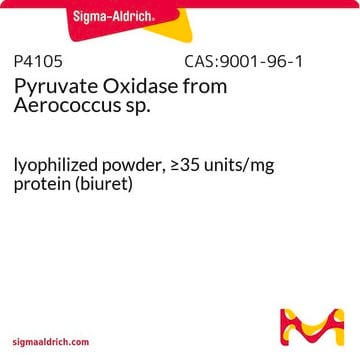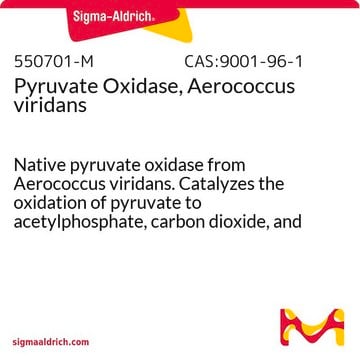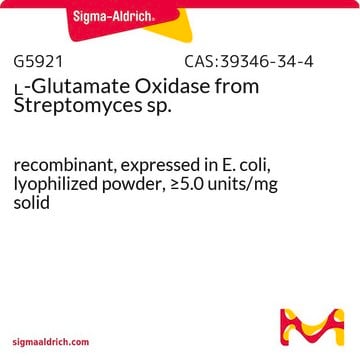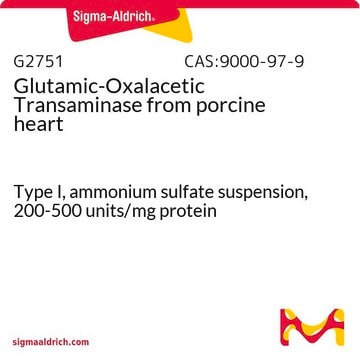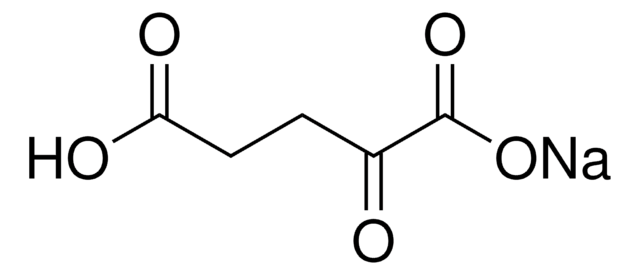P4591
Pyruvate Oxidase from microorganisms
lyophilized powder, ≥1.5 U/mg
Sinónimos:
Pyruvate:oxygen oxidoreductase (phosphorylating)
About This Item
Productos recomendados
form
lyophilized powder
specific activity
≥1.5 U/mg
mol wt
~260 kDa
storage temp.
−20°C
Application
Biochem/physiol Actions
Physical properties
Michaelis constant : 3.4 X 10-4M (Pyruvate)
Inhibitors : Fe++,Zn++,Cu++,Ag+,Hg++
Optimum pH : 5.7
Optimum temperature : 65oC
pH Stability : pH 5.7 - 6.5 (25oC, 20hr)
Thermal stability : below 45oC (pH 6.0, 15min)
Unit Definition
Physical form
signalword
Danger
hcodes
pcodes
Hazard Classifications
Resp. Sens. 1
Storage Class
11 - Combustible Solids
wgk_germany
WGK 3
flash_point_f
Not applicable
flash_point_c
Not applicable
ppe
Eyeshields, Gloves, type N95 (US)
Certificados de análisis (COA)
Busque Certificados de análisis (COA) introduciendo el número de lote del producto. Los números de lote se encuentran en la etiqueta del producto después de las palabras «Lot» o «Batch»
¿Ya tiene este producto?
Encuentre la documentación para los productos que ha comprado recientemente en la Biblioteca de documentos.
Los clientes también vieron
Protocolos
Protocol for Assay Procedure for Pyruvate Oxidase Bacterial
Nuestro equipo de científicos tiene experiencia en todas las áreas de investigación: Ciencias de la vida, Ciencia de los materiales, Síntesis química, Cromatografía, Analítica y muchas otras.
Póngase en contacto con el Servicio técnico